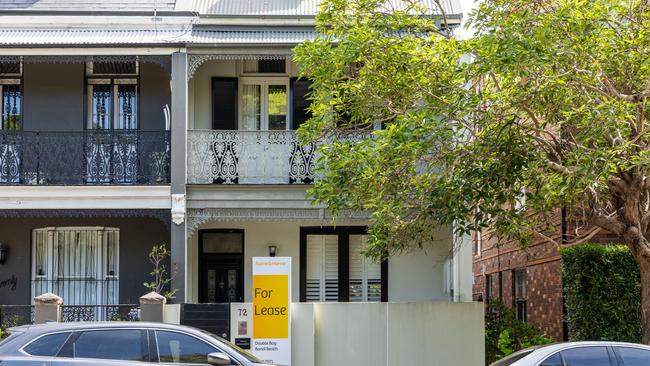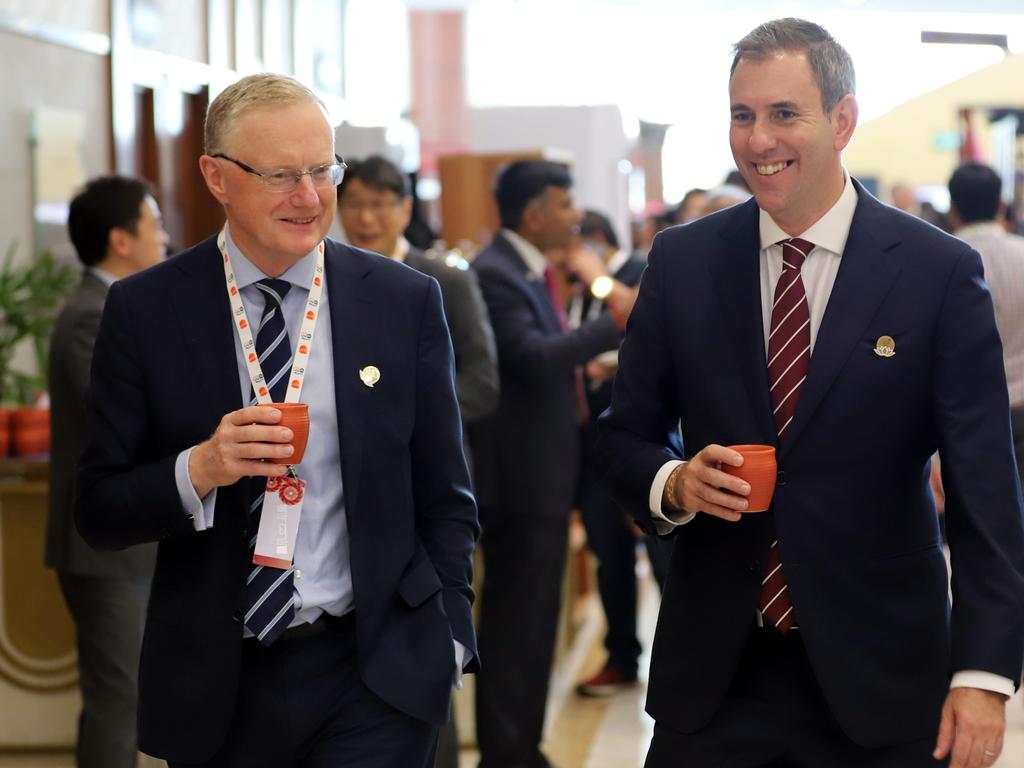RBA fears greater hit to jobs from rate hikes and inflation pressures
The Reserve Bank fears its dozen rate hikes over the past year could cost more jobs than predicted amid an ongoing and unpredictable ‘squeeze’ on household budgets.
The Reserve Bank fears its dozen rate hikes over the past year could cost more jobs than predicted amid an ongoing and unpredictable “squeeze” on household budgets from soaring rates and cost-of-living pressures.
As Jim Chalmers prepares to formalise a new agreement with the RBA that emphasises the pursuit of “full employment”, minutes from the central bank’s July meeting noted “there was considerable uncertainty about the resilience of household consumption” and the fallout on growth and employment from the most aggressive rate-hike cycle in a generation.
In what was RBA governor Philip Lowe’s third last meeting before being replaced by deputy governor Michele Bullock when his seven-year term ends in mid-September, board members weighed a 0.25-percentage-point increase against keeping the cash rate at what they dubbed a “clearly restrictive” 4.1 per cent, before deciding in favour of a pause.
With the nation’s mortgage interest bill predicted to climb from May’s “historical peak” of 9.4 per cent of household disposable income, members “discussed the risk that output growth slows by more than expected”.
“The squeeze on many households’ finances could result in consumption slowing more sharply than implied by the current forecasts,” the minutes noted. “If that were to occur, the demand for labour would slow and the unemployment rate would be likely to rise beyond the rate required to ensure inflation returns to target in a reasonable timeframe.”
The RBA minutes came as the Treasurer met his Chinese counterpart, Liu Kun, on the sidelines of the G20 finance ministers meeting in India.
Dr Chalmers - in the first meeting of an Australian treasurer and Chinese finance minister in four years - is understood to have told Mr Liu that he looked forward to Beijing removing trade barriers on barley, wine and lobsters.
Even as monetary policymakers judged the balance of risks may have tipped from doing too little to bring inflation to heel to having done too much, they noted inflation was moderating from its peak of about 8 per cent in December, but at 5.6 per cent in the year to May it remained too high for comfort.
“Members agreed that further tightening of monetary policy may be required to bring inflation back to target within a reasonable timeframe, but that this depended on how the economy and inflation evolve,” the minutes read.
The July 4 board meeting came two weeks after Ms Bullock said “unemployment will have to rise” to rebalance the economy and bring inflation down, sparking a furious response from leading union officials.
The Treasurer on Tuesday, however, praised Ms Bullock as a “first-rate appointment”, saying she “was a very effective communicator, a very clear, blunt speaker and I think that will serve her well”.
Dr Chalmers told Bloomberg news that Treasury and the RBA “are forecasting the economy to continue to grow, but really quite slowly”, as he highlighted “substantial” challenges facing the global economy.
Reflecting the shifting risks to the economy, while the decision to hike last month was described as “finely balanced”, the minutes showed the more recent decision to hold was not.

ANZ head of Australian economics Adam Boyton said he expected the RBA would be on an extended pause from here, although it was clear August’s decision remained “live”.
“It does seem that pausing in July might have been an easier decision for the board to come to than the hikes in May and June,” Mr Boyton said.
NAB analysts, however, still anticipate a further two hikes, in August and September.
“At the August meeting, the board would have the benefit of additional data on inflation, the global economy, the labour market and household spending, as well as an updated set of staff forecasts and a revised assessment of the risks,” the minutes said.
Investors over recent weeks have sharply pared back expectations for a 0.25 percentage-point rate rise at the upcoming August 1 board meeting, from 91 per cent chance at the start of the month to just 25 per cent leading into the latest minutes, according to the ASX, and economists said the latest minutes were unlikely to materially change that calculus.
The board minutes noted that the mortgage repayment burden will continue to climb as borrowers rolled off super-low fixed rates this year.






To join the conversation, please log in. Don't have an account? Register
Join the conversation, you are commenting as Logout